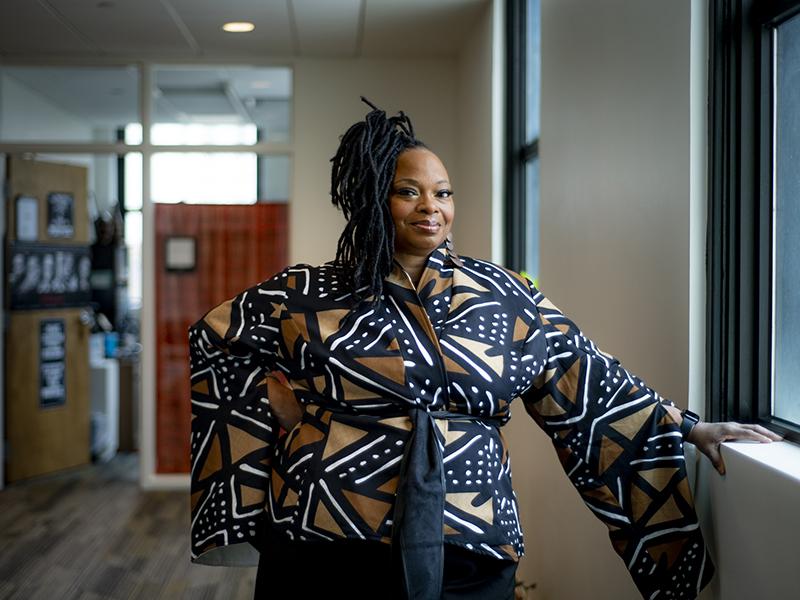New book aims to prepare social work students for 21st century challenges
For the past two years, social workers have been on the front lines of the COVID-19 pandemic, counseling those who have experienced job loss, financial struggles, parenting challenges and depression.
The role of social workers in the pandemic is one of the topics that Joan Blakey, PhD, an associate professor at the Tulane University of School of Social Work, addresses in the 11th edition of her book Direct Social Work Practice: Theory and Skills. The textbook also covers such topics as the Black Lives Matter movement, social injustice and telehealth.
Blakey is a co-author along with social work scholars from across the country. Tulane Today spoke with Blakey about the social work profession and what students of social work can expect as they enter the field.
How important is the field of social work today, given all the challenges Americans face?
The social work profession is vital in addressing the challenges that Americans face. The challenges are complex, historical and embedded within the foundation of this country. I would like to see the social work profession become society's moral compass. I want the profession to push and support America to be better because our lives depend on us, seeing that we are all interconnected. Our destinies are tied to one another. Dr. Martin Luther King said: “We must either learn to live together as brothers or we are all going to perish together as fools.” I believe it is incumbent on the social work profession to do the internal and external work necessary to help America address these challenges in ways that we all can win.
What are some of the new topics that you address in the 11th edition?
We explore and identify challenges regarding the impact of COVID-19 and resulting disparities; implications of electronic service delivery, or telehealth; social injustice; the Black Lives Matter movement; and other issues related to racial inequity affecting clients and practice. We also incorporate gender-neutral language.
When should someone see a social worker as opposed to other mental health professionals?
The main difference between social work and other mental health professions is focusing on the person-in-environment. The social work profession is based on the belief that problems and solutions must be understood within the context of the family, school, work, culture/society, and social relationships. It is critical to look at the physical, emotional and psychological impact on the person. For example, a person comes for help with depression. A mental health professional may help the person connect to a psychiatrist for help with medication. They also may talk about the problems believed to cause depression. Social workers would do the same, but we would look at how the family, community in which a person lives, societal, cultural norms and expectations, physical health, may also be contributing to depression.
What do you hope social work students get out of your book?
We hope that students walk away with a better understanding of the challenges they will face as social workers and identify ways to address them using the orienting frameworks. We hope that students are inspired and excited about joining the social work profession, feeling equipped to begin addressing the concerns that brought them to the field in the first place. We hope that this book provides faculty and adjuncts with additional ideas and perspectives to incorporate into their teaching.

